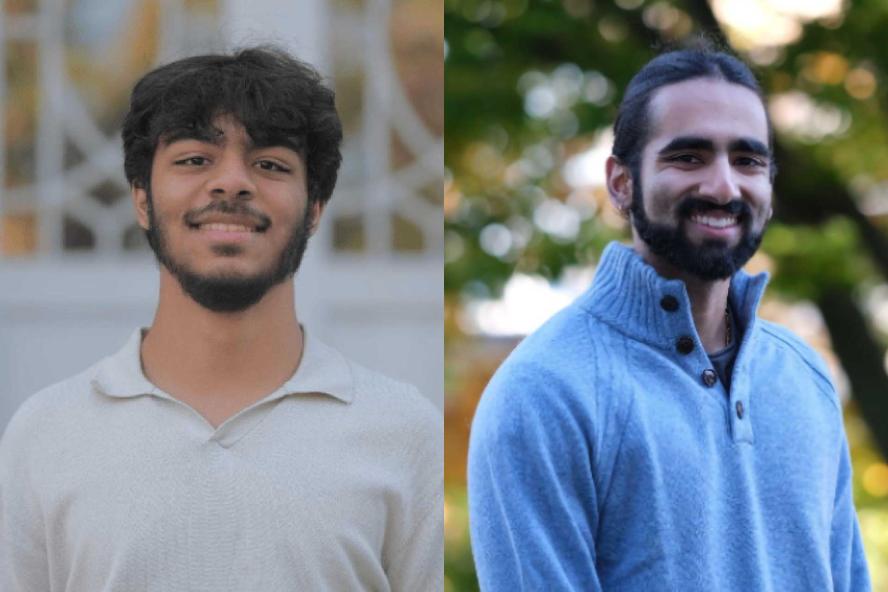Instructor Spotlight: Rohith Raman and Rohan Ganesan

What inspired you to teach this course?
Rohan: I have always been peripherally interested in how the digital age has transformed national and international systems' policy and social landscapes. This crystallized for me after I took a class while studying abroad in Amsterdam about EU laws surrounding social media, AI, and misinformation—highlighting the stark differences between our two regions of the world and sparking my interest in the American perspective. Additionally, given my experience as someone who was personally affected by the rise of social media extremism in the run-up to the 2016 election, combined with my co-teacher’s interest in Tech Policy, this seemed like a perfect topic to cover.
Rohith: In many ways, this class is a reflection of my generation’s experiences with politics, social media, technology, and personal/public opinion. My introduction to politics came during the Obama administration. The War on Terror was regularly televised and circulated in the media. Subsequently, the Trump administration introduced me to the internet subcultures harboring xenophobia and bias that have affected my hometown of Houston and emboldened problematic politics globally. As a young adult, information saturation from every angle is the norm; “doom scrolling,” biased media coverage, and addictive algorithms are lived realities for us and navigating that is both exhausting and necessary. My vested academic interests also influenced me to teach this class. As an IR and STS student, I’ve thought a lot about how digital politics shape our subjectivities and I am really interested in the growing terrain of cyberlaw and digital civil rights advocacy.
What does it mean to be a digital citizen?
Rohith: Although there’s no formal definition of a “digital citizen,” I think that it means to be someone that engages with digital spaces ethically and responsibly. We’ve extensively explored everything from the formation of harmful internet subcultures to political echo-chambers to even dealing with representations of conflict and suffering online, and our discussions always come back to the role of the individual user within our larger digital community. Exercising digital citizenship means remaining critical, analytical, and empathetic while online and navigating issues with media literacy.
Rohan: Being a digital citizen means practicing the responsible use of technology online. At a time when we have a world’s worth of information at our fingertips, digital citizens should strive to create an inclusive, open-minded, and enriching digital environment for all.
Over the last few months, the U.S. government has looked to ban TikTok, and the Australian government has banned Instagram for children under the age of 16. How does this affect how we interact with the internet?
Rohith: These bans highlight the inherently politicized nature of technology policy and social media. Questions about TikTok are symptomatic of larger foreign policy tensions between the U.S. and China, while Australia’s age-based ban on Instagram comes from concerns over user safety and data privacy. In response, many have grown vocal about the potential overstep and censorship that might come from a TikTok ban. These debates illustrate the complexities of platform/content regulation; toeing the line between safety and expression is almost impossible to get perfectly, especially given the external foreign policy interests that often inform these decisions. However, officials, technologists, and policy experts must try nonetheless and derive solutions with the user in mind.
Rohan: For most of its history, the internet has been largely open-source in its access, as well as a gray area from a regulatory standpoint. These bans showcase that this is changing. Moving forward, internet users need to understand that politics and the internet can no longer remain separate and that government actions in the future may have broader consequences on their daily lives.
Rohith Raman is a senior studying International Relations, Spanish, and STS (Science, Technology, and Society).
Rohan Ganesan is a senior studying International Relations, with a minor in Spanish.